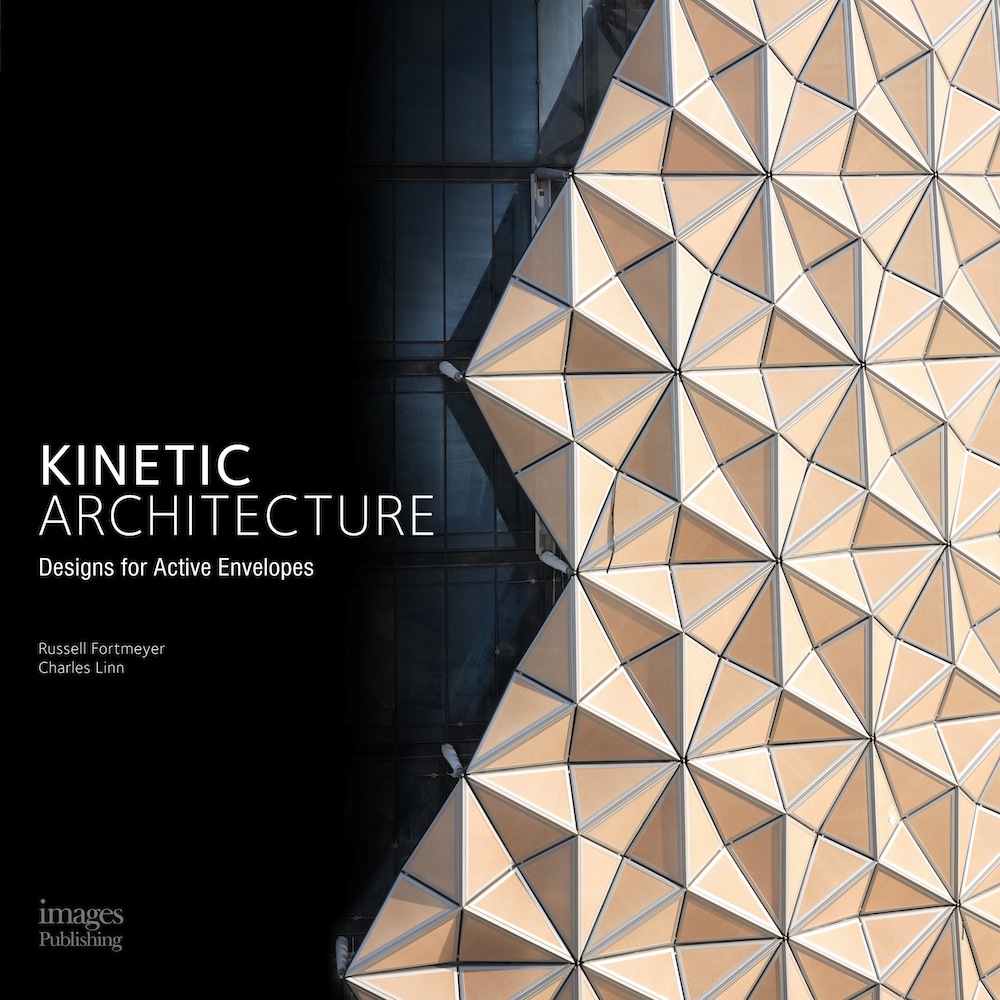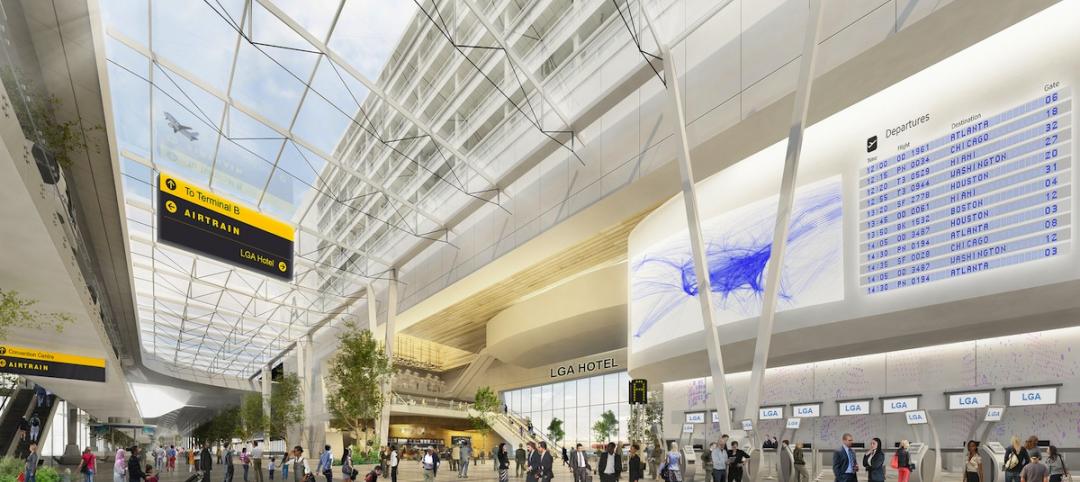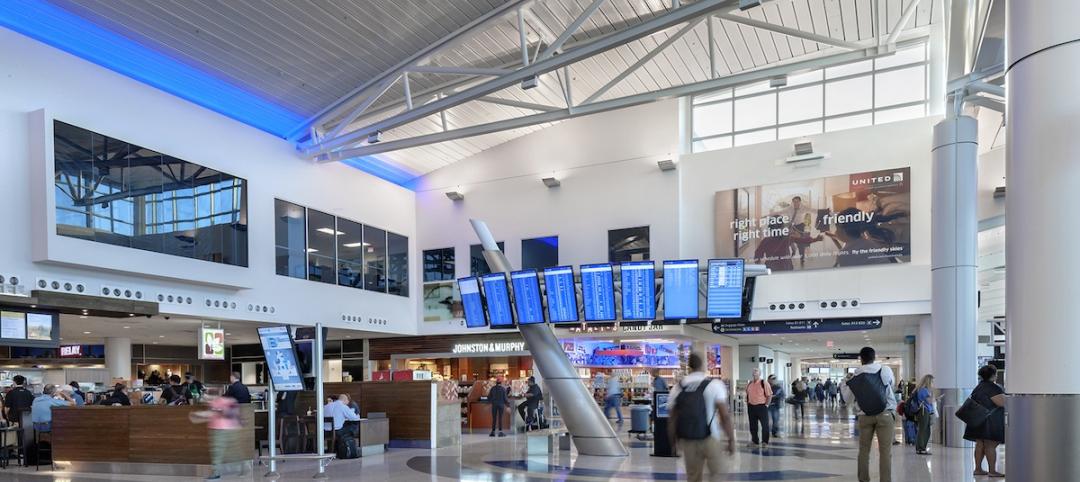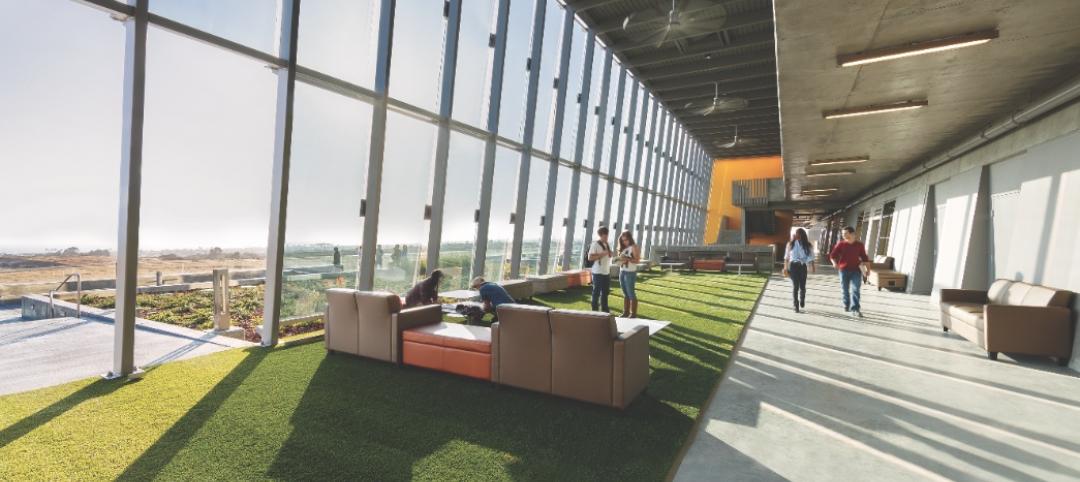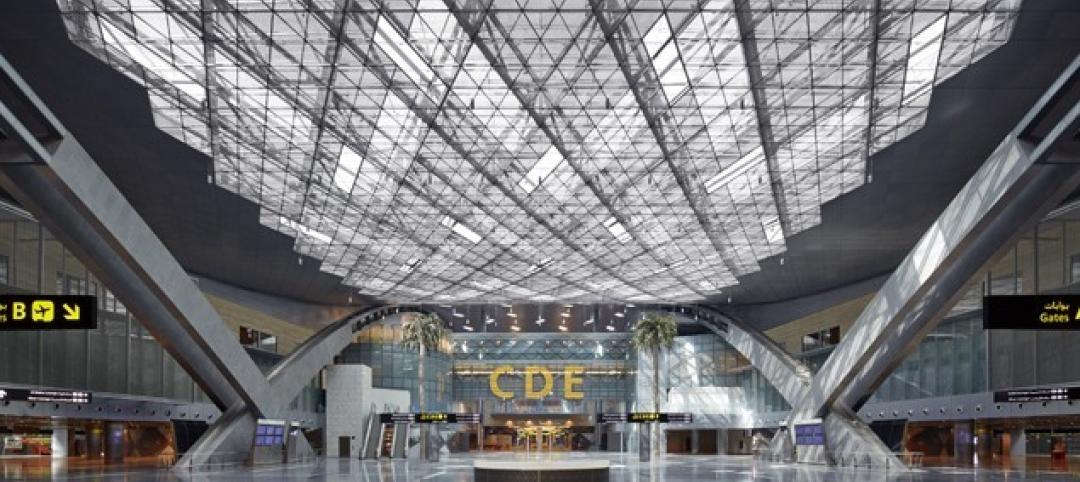Arup has announced that Russell Fortmeyer, LEED AP, BD+C, an associate in Arup's Los Angeles office, has co-authored a book on kinetic architecture with industry expert Charles Linn, FAIA, an architect who has specialized in architectural journalism for more than 25 years. Kinetic Architecture: Designs for Active Envelopes was published in April by Images Publishing Dist Ac. The foreword is written by well-known German architect Christoph Ingenhoven.
The Scottish architect and professor Alan Dunlop, in his review in the April issue of 'The Architects Journal,' wrote that the book succeeds as it "explores in a comprehensive and rigorous manner how contemporary architects have reacted to escalating international concern over the use of natural resources and climate change by modulating their designs to consume less energy, perform better and respond to site context."
The book is focused on facades as the intersection of energy and human comfort, as well as aesthetics, with a detailed exploration of the historical use of facades as dynamic building elements. The book illustrates the various ways architects, facade consultants, and engineers approach energy and comfort by manipulating air, water, and light through the layers of passive and active building envelope systems.
Common techniques include shading strategies, such as high-performance operable blinds, double-skinned facade systems that create an active thermal barrier with accommodations for seasonal adjustments, and the simple practice of installing lift-and-pivot replacement windows. It also explores radically new ideas in facade technology, such as hydronic shroud systems that run water through porous ceramic pipes to create an evaporative cooling effect blanketing a building's exterior. Most examples are geared at reducing solar heat gain in buildings in warm climates, or reducing heat loss in colder climates.
"This book is meant to illustrate that dynamic approaches to high-performance design are more common than one might think, and that it's not out of the question for designers of projects large and small to consider these systems," said Fortmeyer. "The applications discussed within the book apply to a range of building projects, from highly sophisticated technically advanced buildings to those with an almost do-it-yourself aesthetic."
The main objective of Kinetic Architecture is to explore innovative design and construction practices that promote energy efficiency, cost effectiveness, and comfort. It discusses the trend towards energy and facade consultants becoming a single role, embracing a belief that the building envelope is increasingly the key component for delivering energy efficiency for buildings.
It also identifies the emerging market for controls, sensors, and dynamic building systems that place kinetic facades within reach of a variety of architectural projects, with a conclusion that considers future developments in facade technology that consider energy generation, water purification, and other responses to pressing need for environmental sustainability.
Related Stories
Airports | Jul 28, 2015
Plans to make over New York’s aging LaGuardia Airport are revealed
The complete redesign, devised by a panel of experts, would unify terminals, relieve ground traffic congestion, and install state-of-the-art amenities.
Airports | Jul 22, 2015
MUST SEE: JFK airport taps Gensler to design terminal for animals
Pets can enjoy luxurious spa and grooming services before being transported directly to their flight from the terminal.
Airports | Jul 1, 2015
FIRST LOOK: JetBlue opens sprawling green rooftop at JFK International Airport
The 4,046-sf rooftop includes landscaped green spaces, seating for 50 people, 400-sf children’s play area, and a 400-sf dog-walk area.
Sponsored | Airports | Jun 5, 2015
Exposed glulam framework offers quiet complement to Jackson Hole airport’s mountain backdrop
A three-phase expansion and renovation, which began in 2009, nearly doubled the size of the aviation hub; the only one located in a national park
Airports | Apr 21, 2015
Trends driving airport construction
Upgrades to aviation infrastructure have not kept pace with the increase in airport traffic or even at a level sufficient to accommodate the life cycle of our many dated terminal facilities. Until now.
Airports | Feb 6, 2015
Zaha Hadid-designed terminal in Beijing will be world’s largest
The terminal will accommodate 45 million passengers per year, and will be a hub for both air and rail travel.
| Jan 2, 2015
Construction put in place enjoyed healthy gains in 2014
Construction consultant FMI foresees—with some caveats—continuing growth in the office, lodging, and manufacturing sectors. But funding uncertainties raise red flags in education and healthcare.
BIM and Information Technology | Dec 28, 2014
The Big Data revolution: How data-driven design is transforming project planning
There are literally hundreds of applications for deep analytics in planning and design projects, not to mention the many benefits for construction teams, building owners, and facility managers. We profile some early successful applications.
| Dec 28, 2014
AIA course: Enhancing interior comfort while improving overall building efficacy
Providing more comfortable conditions to building occupants has become a top priority in today’s interior designs. This course is worth 1.0 AIA LU/HSW.
| Dec 28, 2014
The future of airport terminal design: destination status, five-star amenities, stress-free travel
Taking a cue from the hospitality industry, airport executives are seeking to make their facilities feel more like destinations, writes HOK's Richard Gammon.


